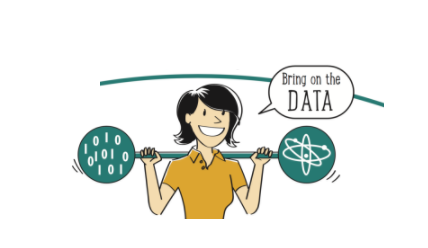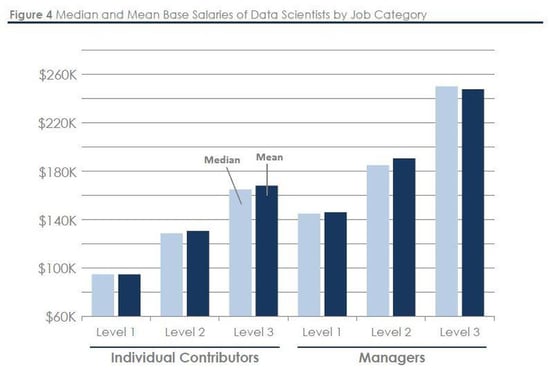By now, it’s no secret that Harvard University named data scientist the sexiest job of the 21st century. Yet unfortunately, not every company can afford to hire one of these little superheroes — but there is hope(!) and, more importantly, a viable path forward for those organizations.
Data Scientists Don’t Come Cheap (or Easy)
One thing is sure and needs to be said at the beginning of this blog post: we all love data scientists. Seeing them solve the most complex issues and business problems for any industry, day in and day out, highlights the impressive work that they are doing.
Given this, it makes sense that this kind of talent doesn’t come cheap. To give you an idea of what a salary for a data scientist might look like:
- Forbes reports that median base salaries range somewhere from $95,000 for beginners to $165,000 for individual contributors, and
- From $145,000 to $250,000 for managers.
And while the supply of data scientists has increased, so has the demand (an ongoing trend that also makes data scientists earn base salaries up to 36% higher than other predictive analytics professionals).
Apart from the fact that the battle of hiring data scientists can be tough for any kind of company or organization no matter what the budget (by the way, here are some tips on how to hire great data scientists), the calculation is simple, and one does not need to be a super genius to understand that this puts especially non-profit organizations and NGOs in a difficult situation.
The Non-Profit and NGO Struggle Is Real
Of course, the issue at hand is particularly prevalent in this industry due to a lack of personnel as well as limited time and limited financial resources, which in turn limit the level of overall data science work and (inevitably) the quality. Relying largely on donations, many non-profits and NGOs simply just cannot afford high expenses, even for data-driven IT-solutions.
This is where the Dataiku Academic and Non-Profit programs come into play. At Dataiku, we strongly believe that everyone should be able to work with their data to gain valuable and actionable insights, no matter the financial and time resources. That’s why we offer free licenses, not only to academics and researchers, but also to non-profits and NGOs. Because, let’s be honest there: isn’t everything a little nicer when it is related to a good cause?
The free license to the enterprise version of Dataiku (including big data connectors, insights and dashboards, production, and automation features) enables non-profits and NGOs to easily access their data, get insights fast, and ultimately, automate their work (thanks to visual AutoML tools).
The collaboration aspect of Dataiku is also especially interesting for these groups considering the lack of personnel many organizations are facing, as both coders and non-coders alike can work on projects together. Apart from that, support is there when needed — both for technical and project-related issues.
What About Small Businesses?
The time and resource constraints are obviously not exclusive to non-profits and NGOs; in fact, many smaller businesses without extensive data or IT departments could still benefit greatly from cutting-edge technologies like machine learning and AI. Their challenges are related, but can be slightly different.
In small business, the reality often is either:
- One data scientist who’d love to speed up the data she finds herself surrounded with, but just no option to do some of her data science magic on it at the kind of scale that can impact the business (in particular, a one-(wo)man team might struggle with the operationalization of models).
- A few data-savvy people who are not necessarily data scientists, but know the business and the data well. Yet they don’t have the tools to guide them into more advanced analytics projects.

Data science tools are a great way to empower these people (read more about what they are in general, why they matter, and what features to look for to fit your needs). But there are lots of solutions out there that make sense for small businesses - read more here in our post specifically on this subject.
The Bottom Line
The good news (and the secret) is this: you don’t need a large data science team to get value from your data (or to do machine learning or even AI). The key is having the right technology in place that allows a one-person team to scale their efforts or that properly leverages the skills of business analysts (who may or may not be able to code) to contribute in a meaningful way to impactful data projects.






